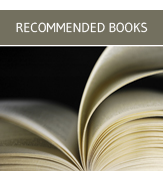What We Read in 2020
As we do every year, we recently asked Library staff about the books they enjoyed reading the most in 2020. As always, a varied bunch of books was the result. We hope you find something here that catches your eye and sends you to the stacks (or the Cloud Library app).
Patrick Rayner, Acquisitions Assistant/Circulation Assistant 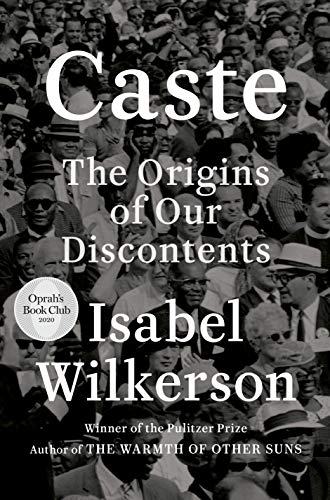
Though much of what I wanted to read in 2020 was some combination of comforting and diverting, the two best books proved neither. Hervé Guibert’s autobiographical novel, To the Friend Who Did Not Save My Life, chronicles the narrator's HIV diagnosis. Guibert received his diagnosis in 1988 and published this novel in 1990. He is wildly indiscreet, woeful for a friend but wonderful for this reader. It is by turns darkly comic and desperately fearful. Though fascinating as a record of the early years of the AIDS crisis, I cannot imagine Guibert concerned himself with his place in history—the writing is too immediate and reckless for that. This novel still shocks 30 years after he wrote it.
Entirely different, though no less provocative, is Isabel Wilkerson’s Caste: The Origins of Our Discontents (ebook and audiobook download also available). She argues that there is a caste system in the United States that created a fixed hierarchy of human value based on ancestry, similar in structure to caste systems in India and Nazi Germany. It began with slavery and, with us as accomplices, continues today. Rooted in race, this system creates the unspoken rules by which we live our lives —affording dignity to some at the expense of others. Wilkerson has amassed an army of evidence and examples to make her case. The book is difficult and disturbing, and it feels like a reckoning that's long overdue. Still, there is pleasure to be found in clarity of her vision and the quality of her sentences.
Sara Holliday, Head of Events 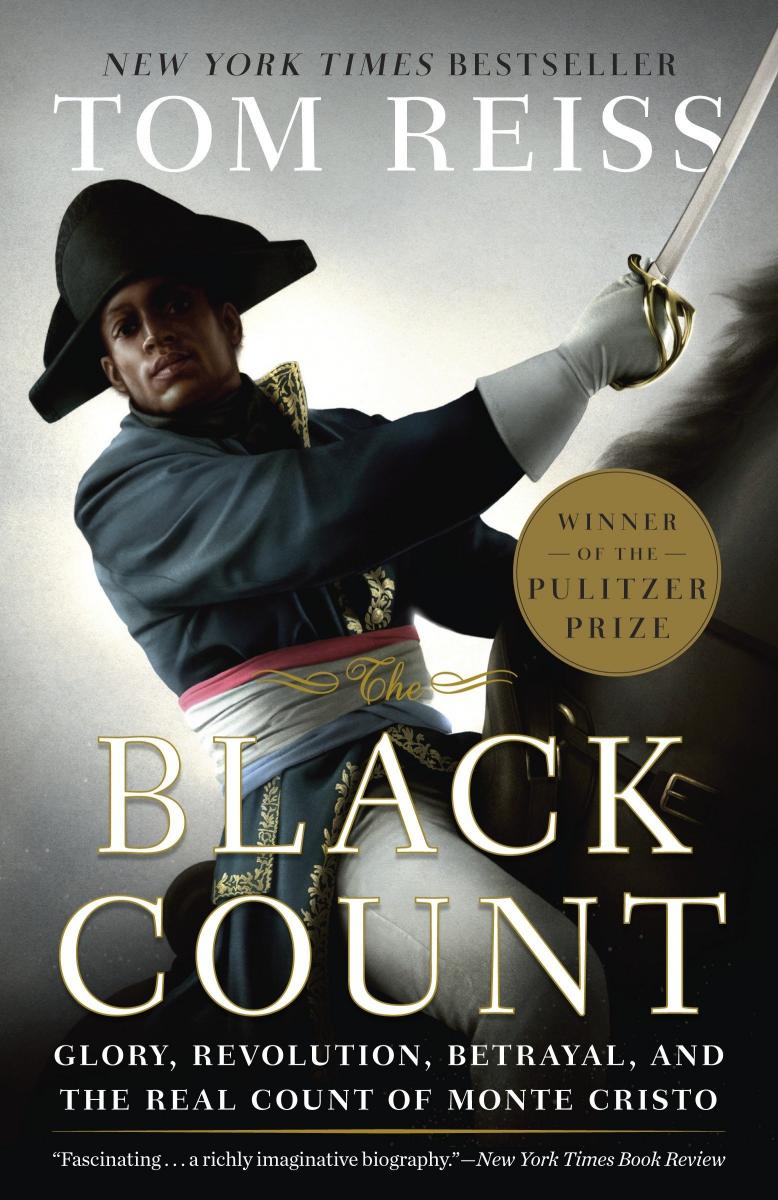
The Black Count: Glory, Revolution, Betrayal, and the Real Count of Monte Cristo | Tom Reiss
As the pandemic raged through our city last spring, my household fought despair with a swath of swashbucklers. Atop many films, these included this engrossing biography of the first Alexandre Dumas – a remarkable character who lived several of the lives his novelist son would excerpt to such great dramatic effect. Like D’Artagnan, he was rumored to have fought three back-to-back duels and walked away unscratched; like Porthos, he drove the panicked enemy before him through sheer stature and charisma; like poor Edmond Dantès, he was immured in a prison for secret political reasons beyond his control. His saga also includes a touching love story, a handful of scandalous relations, and a unique perspective on Napoleon as liberator and commander.
My other escape this year was handed me by some great YA fiction, including Mary H.K. Choi’s Emergency Contact, where a unique meet-awkward changes the lives of two college-town misfits and their beautifully drawn, disturbingly wacky extended family.
Carolyn Waters, Head Librarian 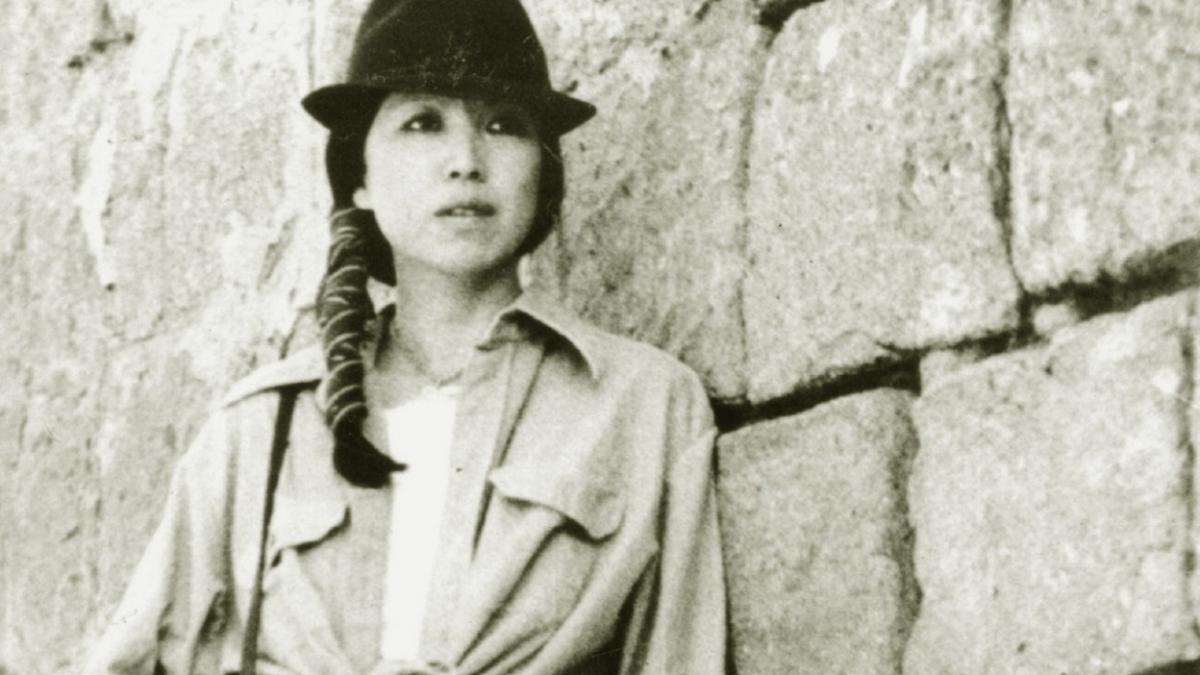
I doubt I would have discovered Sanmao’s Stories of the Sahara without the help of the Acquisitions Department’s invaluable In Case You Missed It series of book recommendations, so thank you, Steve & Patrick! Born Chen Mao Ping in China, Sanmao’s wanderlust takes her to Europe and eventually to the Sahara with her Spanish husband. Sanmao is not always a credible narrator, but no matter, she is a free spirit and an engaging storyteller, and underlying her brief essays is a revealing lens on life among the Sahwari under Spanish occupation.
Randi Levy, Head of the Children's Library 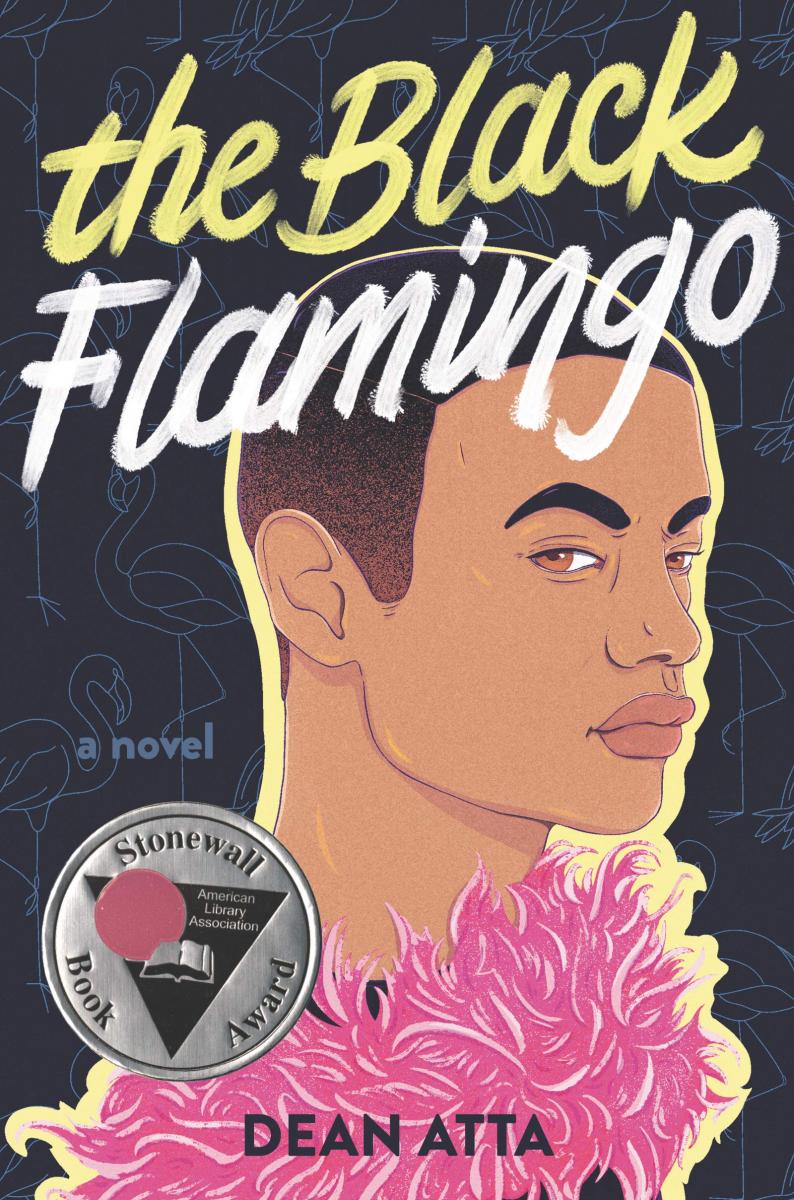
Reading—literally, processing words on the page--was difficult for me through our dark spring. I was grateful for audiobooks, which helped me reengage with stories both true and fictional. Olive, Again, Charlotte's Web, Hatchet, and The Year of Magical Thinking were excellent and diverting companions on my long, solo masked walks.
As the curve flattened, I gradually emerged from my reading block and two lyrical novels-in-verse took my breath away for the poetic storytelling and the fact that stories like this are often left untold. Black Flamingo (audiobook download also available) by Dean Atta tells the tale of a mixed-race, gay London teen finding and defining himself. Punching the Air (ebook also available) by Ibi Ziboi and Yusef Salaam, of the Exonerated Five, is the powerful story of a Black teen caught up in the American prison system working fiercely to hold onto and express his creativity and humanity in spite of fundamental injustice.
Finally ready for full-length narrative fiction, my favorite genre of children’s literature did not disappoint. Acclaimed author Linda Sue Park wrote an engaging, inclusive, and honest treasure for the historical fiction canon: Prairie Lotus (audiobook download also available). In 1880, Hanna—half Chinese and half white-- and her father strive for their American dreams in a growing prairie town. You will root for Hanna as she seeks acceptance, education, friendship, and recognition of her great talent all while navigating the pervasive racism and ignorance in her community.
Susan Vincent Molinaro, Children's & Young Adult Librarian 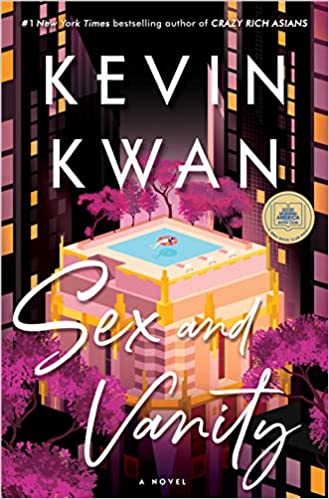
Becoming RBG: Ruth Bader Ginsburg’s Journey to Justice | Debbie Levy
A few years ago, we added Levy’s biographical picture book, I Dissent, to our collection. Recently, I spent several lunch hours poring over this expanded graphic biography featuring Whitney Gardner’s beautifully simple line drawings. Though the nation mourned the seemingly premature passing of “the notorious RBG” on Rosh Hashanah, this book illustrates how just how much this legendary lady achieved during her not-so-short lifetime. I especially felt connected to her when I learned that she recited the same A.A. Milne poem that I did as a child and later referred back to it in a court case!
Sex and Vanity (ebook) | Kevin Kwan
I have long been a fan of A Room with a View (both Forster’s Edwardian novel and the sumptuous Merchant Ivory film made in the mid-80s), so when I read that Kwan was updating it to modern times and shifting the settings to Capri, the Upper East Side, and the Hamptons, I had to check it out. Other adaptations of this tale have failed to impress me, but this one was a riot to read. In October, The Society Library was treated to an online interview with the author himself. In it, Kwan mentioned that there will be more to come, other transformations of classic novels to be set in Paris and London and I can’t wait to see what he does with them.
Marialuisa Monda, Events Assistant 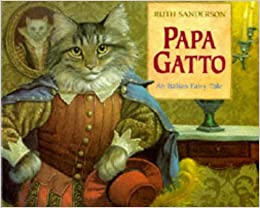
During this time, I felt a need to read children’s books because they promise magic, overcoming obstacles, and embracing our fears. Here are two books from my childhood that I absolutely loved revisting:
Papa Gatto: An Italian Fairy Tale | Retold and illustrated by Ruth Sanderson
Sir Gatto, the anthropomorphic cat and trusted advisor to the Prince, has recently been widowed with eight kittens. Due to his demanding job, he needs someone to take care of his home and kittens. He employs the beautiful Sophia to take care of his children while he is away. Yet, when he returns he discovers his home in shambles, neglected kittens, and a priceless heirloom on the selfish girl’s wrist. After scaring and firing the girl, he finds Beatrice, whom he considers not as beautiful, but very loyal, hardworking, and loving. The crafty Sophia, who happens to be Beatrice’s relative, has other ideas, especially since she desires to marry the Prince, Sir Gatto’s employer. Never fear—the story, of course, ends happily ever after.
I have always loved this story because it has gorgeous illustrations and the story is just so wonderful—almost like Cinderella. Recently, I found out this is a retelling of a classic Italian fairytale!
Stone Soup: An Old Tale | Told and pictured by Marcia Brown
This is among the few known retellings of a story about a town coming together to make soup out of a stone. This is the French version of Stone Soup, where three hungry soldiers enter a town for food. Seeing that the townspeople are stingy, they come up with a successful plan to outwit them. The soldiers convince the town that they will make a wonderful soup out of a stone. Of course, all of the townspeople must contribute: some add meat, others a carrot or two. And so it goes, until everyone leaves the feast satisfied, with all bellies full.
This is a fun version of the priceless and classic story. For me, the tale is a reminder of what we can do together when we cooperate and share resources.
Steven McGuirl, Head of Acquisitions 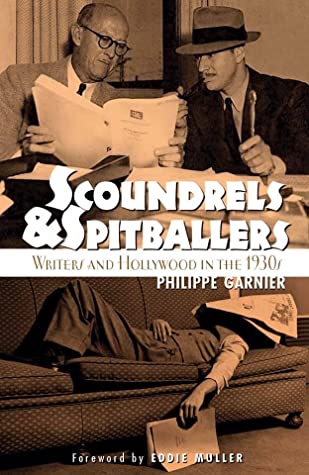
I just finished Scoundrels & Spitballers: Writers and Hollywood in the 1930s, by Philippe Garnier, and for those interested in exploring the darker corners of American filmmaking history, I can't recommend it enough. Through an extensive series of interviews and deep dives into archives, Garnier has fashioned a very entertaining 'crazy quilt' of fact-packed profiles and anecdotes that provide fascinating insight into not only how Hollywood used and exploited writers in the 1930s, but just as importantly, how writers used and exploited Hollywood. Don't look for oft-repeated stories about Faulkner and Fitzgerald's "time in the sun." In Garnier's book, the marquee names are Nathanael West and James M. Cain, followed by Horace McCoy, Edward Anderson, and Buzz Bezzerides. A colorful cast of largely forgotten "tramp newspapermen," pulp and proletarian writers, bookstore workers, and drifters, drunkards and jailbirds figures just as prominently. Some of the "informants" are as interesting as the writers under discussion, and in many ways, this book is about memory and how history is recorded.
Other books I enjoyed in 2020 include Born Losers, Barbara Skelton's 1965 collection of New York City stories. Known more as a subject of gossip in the London literary world, Skelton was also a funny and sharp writer. It is not hard to imagine her rediscovery by fans of Elaine Dundy, Eve Babitz, or Nell Dunn. Frank Norris' McTeague, although sometimes clumsy (and occasionally offensive), was surprisingly difficult to put down, or to shake once finished. A Shelter for Bells, a collection by Austrian writer Hans Jürgen von der Wense—"... folklorist, wanderer, aphorist, poet, and mystagogue of the landscape"—beautifully sequenced and translated from 30,000 pages of Wense's writing, was a needed and cherished companion as the world seemed less and less familiar. You Talkin' To Me?: The Unruly History of New York English, by E.J. White (ebook also available), was a fun and fascinating look at the historical sociolinguistics of New York English. Finally, and perhaps most enjoyable of all, was revisiting John McPhee's The Pine Barrens about 25 years after I first read it. When it comes to perfectly pitched sentences, the accretion of carefully chosen details, it is hard to beat McPhee's skill at painting a mulit-faceted portrait of a place.
